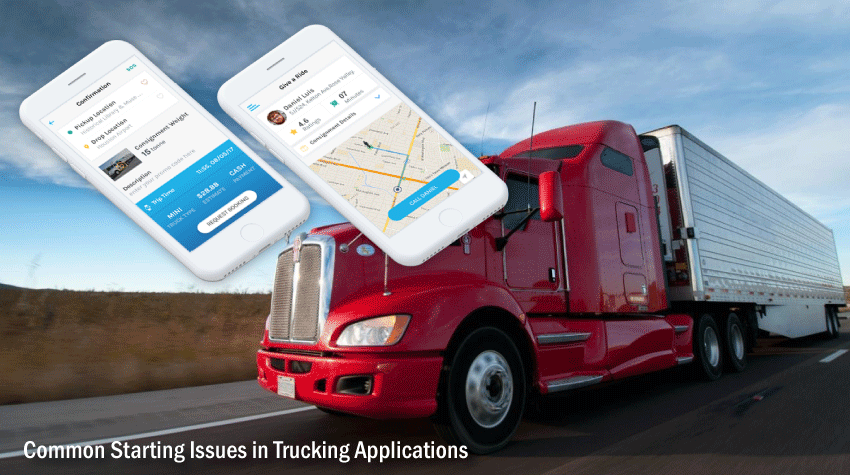Many of us have experienced that disappointing moment when your truck fails to start. It often comes as a shock and leaves you with several questions in your mind. We seldom believe it the first time then turn the ignition a second and third time to try to force crank the engine.
Starting issues in a truck are much like headaches, they almost always a symptom of a more serious problem in your truck. Rushing to your spare parts dealer and replacing the starter is a temporary quick fix solution that usually serves to postpone the effects rather deal with the underlying problem. Sad to say, you may find yourself at the same spot, if not worse, six months down the line.
Why the truck doesn’t start
In New Zealand, there are three main reasons for a truck to fail to start when you turn the ignition. The first two reasons are quite basic, either your battery is dead or there isn’t enough fuel in the tank. The third cause of starting issues is an electrical failure or faulty starter.
When you take a minute to think about the reason behind the failure, you might realize that you didn’t top up the fuel after your last trip or that you left the lights or radio on. Leaving electrical equipment on when the truck engine is off usually drains the battery.
Initial Diagnosis
There are several things you could try before calling in the professionals. The first thing you should do is stop forcing it to crank. If the truck as a problem with the starter and you keep forcing the issue, you may end up completely draining your battery or burning out the starter. This initial self-diagnosis tips could help save you a lot of money in mechanic fees and keep you from damaging the truck further.
Listen to the Truck
It is important to listen to the sound the truck makes when you try to crank it. If your truck does not start immediately when you turn the ignition, take a minute to think about the possible cause, and then turn the crank once more while paying close attention to the sound it makes.
While there are several different noises the truck engine could make while failing to start, you should try to listen for a distinct ‘Click’ sound. Different engine types and configurations may make a wide range of sounds such as ‘buzzing’, ‘whirring’, or ‘grinding’ among others that could have a wide variety of meanings. However, the standard sound made by all starters in trucks that use a key ignition is a loud click sound just before the engine cranks. Based on the click sound alone, starting issues can be classified into three groups as follows.
- Click, No-Start
- No click, No Start
- Slow Start
Click, No Start
Generally, if you hear a distinct single ‘Click’ sound, it means that the starter is getting enough current but there could be a fault in the starting motor or solenoid. In some cases, you could have a mechanical problem in the engine.
No Click, No start
If you don’t hear anything when you turn the ignition, it usually points to electrical issues such as battery failure, corroded electrical connections, or a failed starter system.
Slow Start
A slow start is a middle ground between the ‘Click, No start’ and ‘No Click No Start’ categories. It means that the starter is receiving enough power to crank the engine it is not rotating fast enough to start. This often points to a fault in the battery or wiring system and often damages the starter beyond repair.
Conclusion
As mentioned before, replacing your starter should be the last rather than first step in solving your starting issues. If you don’t find and resolve the root cause, any new starter will experience the same failure in the near future. The following tips will help you find a permanent solution to your starter challenges.
- Batteries: Test and replace any faulty batteries in your system.
- Wiring: Ensure that the voltage drop in your wires is less than 0.5 volts. If the drop is higher, consider replacing your wires with thicker ones since there may be too much resistance in the circuit.
- Alternator: If your batteries were not fully charged, you may consider replacing your alternator. All alternators have a range of kilometres of viability and begin to wear out with use. Keep note of your alternators life span and prepare to replace it when it starts performing badly.
- Starter Motor: If you open the starter system of your truck and find that the motor has worn out or burnt out, you should replace it immediately. We advise you to use genuine or manufacturer endorsed truck parts for such sensitive components.
Read Also:
Why Demand for Fuso Truck Parts is Increasing
Tips for Sourcing Spare Parts for American Trucks
